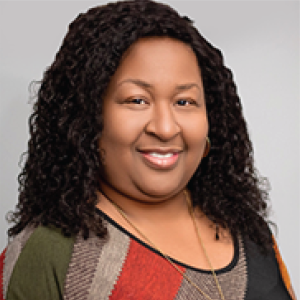 “You don’t know where you’re going until you know where you have been,” as Maya Angelou explained. And Salina keeps these words in mind as she reflects on her career. “I’m currently the CDA/PD support specialist for Alabama and I guide candidates across the state,” Salina explains. “I do everything from making them aware of the different platforms they can use to earn their learning hours to assisting them in putting together the CDA® portfolio, using the Council’s website and locating a PD Specialist for the assessment.” It’s a role that puts a lot of miles on her state car as she tries to connect with as many CDA® candidates as she can.
“You don’t know where you’re going until you know where you have been,” as Maya Angelou explained. And Salina keeps these words in mind as she reflects on her career. “I’m currently the CDA/PD support specialist for Alabama and I guide candidates across the state,” Salina explains. “I do everything from making them aware of the different platforms they can use to earn their learning hours to assisting them in putting together the CDA® portfolio, using the Council’s website and locating a PD Specialist for the assessment.” It’s a role that puts a lot of miles on her state car as she tries to connect with as many CDA® candidates as she can.
“That’s a big challenge,” she says, “because not everyone is tech savvy and can communicate well with a Zoom call. I need to go out and sit down with candidates who are spread across the state. So, I can only spend a short time with each person before I need to go on to the next. And that’s frustrating for me because I can relate to the candidates I serve. I know the issues they face because I was a working mom when I was earning my CDA® and then going on with my education. I can feel their pain when they tell me it’s hard finding time to reach their learning goals, write their competency statements and put together the items for their resource collection. Their journey to the CDA® was my journey, too. So, supporting them is not simply a job for me. It’s personal, too. I know where these candidates are coming from and where they hope to go.”
She also understands you don’t always wind up where you thought you would since she did not expect to go into her current career. “I was a political science major in college and planned to be an attorney,” she recalls. “Then I decided to take a break from school and spent some time working in a hospital and a nursing home for the aged before getting a job at Head Start”—experiences that showed Salina how much she loved working directly with people, whatever their age. “Talking with both patients and children made my day, so I spent some time thinking about where I should go in my career and whether I should study nursing or education. Finally, after some soul searching, I realized I had a passion for early childhood, and Head Start opened the door for me to succeed in the early childhood field.”
When Salina went to work for Head Start in 2001, she was part of a team of teachers who opened Montgomery Community Action’s first Early Head Start in Montgomery, Alabama. “We spent the summer together going through training, getting to know each other and building bonds,” she says. “Then we worked together to build the program. Head Start put the ball in our court by having us do a walkthrough in which we decided which rooms and which activities were best for helping each age group thrive. And we really saw the children develop because the program followed a continuity of care, or looping, system in which each class of children stayed with the same teacher until advancing to the regular Head Start program.”
And Salina also advanced her career by earning her CDA® and associate degree at the same time. Then in 2007 she earned a bachelor’s degree and in 2008, she began teaching kindergarten in a Montgomery public school. While there, she provided the children with both education and entertainment to get them engaged in reading books. “One of the books I read with them is called Mrs. Nelson is Missing,” Salina recalls. “It was about a teacher who decided her class had been acting too badly, so she came to school all dressed in black and posed as the meanest substitute teacher ever. The children all wanted their regular teacher back since they didn’t realize that it was her in disguise.”
And Salina put on a disguise of her own when she read The Cat in the Hat to her class. “The children loved it when I put on my Cat in the Hat costume,” she says. “The parents loved it, too, and they would take pictures of me dressed as the cat and standing with the kids. The only problem was the cat’s head was vinyl. That made it hard to breathe, and it was uncomfortable to keep on for long periods of time.”
But Salina has always been willing to go beyond her comfort level, she says. “And I did after the mom of my daughter’s friend saw me at a cheerleading camp and asked if I had ever thought about leaving the classroom. She told me that they were hiring at the state department where she worked. When I told her I might be interested, she called her supervisor and asked me to send in my resume, something I forgot to do when I arrived home from the camp. Still, I received a call reminding me to do so a few days later. And when I was offered a position, I realized I wasn’t really looking for another job.”
At the same time, Salina saw the importance of striving to do something challenging and different, she explains. So, she began working for the Alabama Department of Early Childhood Education in its First-Class Pre-K program. In the past eight years, Salina has served in several roles—education specialist, birth to five developmental coordinator and interim birth to five systems administrator—before assuming her current role as CDA/PD support specialist in 2022.
She’s especially well equipped to do the job because she has also served as a PD Specialist and still does a few assessments when time permits. “Becoming a PD Specialist,” she says, “helped me understand the process of obtaining the CDA® better.” Of course, she knew something about what it took to earn a CDA® because she had been a CDA® candidate 20 years before. And having experience on both sides of the CDA process has helped her understand how to walk candidates through every step they need to take.
Salina begins by building relationships with the rising CDA® candidates she now guides in her current role. “Every candidate is unique,” she says. “They have different learning styles. They’re at different levels in their professional growth. So, I have to get to know each candidate and meet them where they are to help them succeed in earning their CDA®.”
The state is now making a big push to have more CDA® holders, Salina explains, and this effort will fill an important need. “Sometimes our child care centers can’t afford to pay people who’ve already had formal training on what’s developmentally right for young learners. So, the CDA® provides the foundation they need.” Besides there are other benefits to earning a CDA®, as Salina points out.
“It’s recognized nationwide, so CDA candidates can move tomorrow and still work in the early childhood field. And earning a CDA inspires you to learn more, as I did. After earning my associate and bachelor’s degrees, I completed my master’s degree and this December, I’m due to earn my doctorate in organizational change and leadership in rural education. I’m on the third chapter of my dissertation and the basic subject I’m exploring is how earning a CDA affects the quality of teaching in the early childhood classroom.”
Salina knows it helped her improve as an educator and inspired her to advance in her career. So, she tells candidates about her experiences in order to make them persist. “When they’re feeling overwhelmed, I talk to them about my own struggles as both a student and working mom. I managed, though there’s nothing special about me. And you can do it, too,” Salina insists when candidates say they can’t go on.
And she’s especially proud of two students who have taken her words to heart. “One is a young Head Start employee named Kim,” Salina says. “She had some family issues, she had problems with her housing situation, and two of her children became ill. Yet she overcame these roadblocks to complete her CDA®.” Sure, she had a tough time, and so did Gladys, a family child care provider who wanted to boost her quality star rating by earning a CDA. “She’s not very tech savvy and she was nervous about going back to school,” Salina says. “But I walked her through the CDA® process and she’s waiting now to get her observation.”
Gladys still has a few things she wants to accomplish with her career, and Salina does, too. “I would like to take steps to ensure more equity in teacher training across the state,” Salina says. “I would also like to work more closely with the Council to make sure candidates are getting everything they need.” And she’s glad to do everything she can for them because she believes in the golden rule. “I try to meet people where they are and treat them the way I would like to be treated,” she says. So, she’s committed to guiding people in the right direction as they try to reach their goals. Knowing where you’re going is the first step in getting there. And a CDA®, as Salina knows, is a great first step to a successful career.

 “You don’t know where you’re going until you know where you have been,” as Maya Angelou explained. And Salina keeps these words in mind as she reflects on her career. “I’m currently the CDA/PD support specialist for Alabama and I guide candidates across the state,” Salina explains. “I do everything from making them aware of the different platforms they can use to earn their learning hours to assisting them in putting together the CDA® portfolio, using the Council’s website and locating a PD Specialist for the assessment.” It’s a role that puts a lot of miles on her state car as she tries to connect with as many CDA® candidates as she can.
“You don’t know where you’re going until you know where you have been,” as Maya Angelou explained. And Salina keeps these words in mind as she reflects on her career. “I’m currently the CDA/PD support specialist for Alabama and I guide candidates across the state,” Salina explains. “I do everything from making them aware of the different platforms they can use to earn their learning hours to assisting them in putting together the CDA® portfolio, using the Council’s website and locating a PD Specialist for the assessment.” It’s a role that puts a lot of miles on her state car as she tries to connect with as many CDA® candidates as she can.